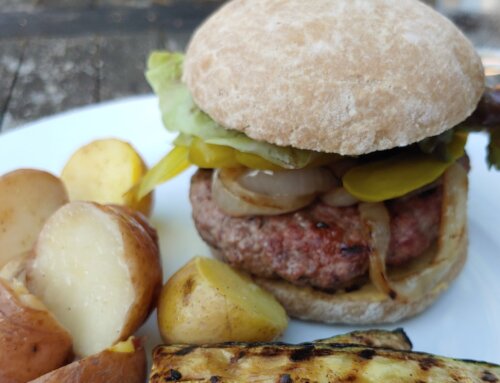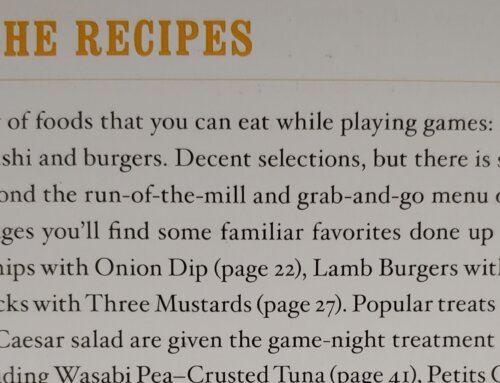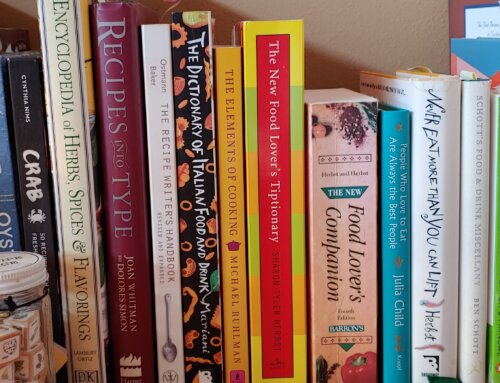I’ve got a document I simply titled “The Mission” where I’ve been capturing—in succinct bullet-list form—high-level perspectives on the value of well-written recipes for the last few years. Among recipe-related themes I plan to address later are the vast array of sources home cooks have for recipes these days; why it matters that recipes be well written; and five guiding principles I’ve come up with for recipe writers. And the mission and vision statements I’m developing for this current work.
Today I want to focus on another of those attributes: what recipes accomplish. The simplest, and always-true, answer is of course that a recipe provides a cook with the information necessary to create whatever outcome the recipe writer had in mind. Done well, that’s a laudable outcome and a plenty good raison d’être for a recipe.
Beyond the simple getting-dinner-on-the-table value, recipes have so much more to offer. They can—depending on the source’s intent—teach technique, represent memories, build community, instill confidence, support good health, provide comfort, showcase an ingredient, and generally inspire new cooking adventures.
Recipes also develop trust in the source, at least when things go well. Cookbook authors and other food writers gain a devoted following with recipes that consistently turn out well. Brands create positive customer experiences that encourage repeat engagement with the brand. Anyone who shares a recipe that the cook on the other end finds delicious, satisfying and worth the time to prepare helps perpetuate the pleasure of cooking, ensuring continued demand for great recipes. Which benefits everyone!
Recipes that don’t accomplish even the most basic promise of something delicious to enjoy are not only missed opportunities, but they can backfire. Some home cooks might just shrug at the lost time and wasted ingredients resulting from a poorly-written recipe and assume they simply messed up. Others, though, will think twice about returning to that source next time they’re in search of something delicious to make.
Maybe a bad recipe experience is a more subtle disconnect than a disappointing product or service experience. But why chance it? I believe pretty strongly that it pays to put maximum effort into the quality of recipes—whether you’re a food writer or a food brand—to avoid disappointment and ensure success for the home cook.




